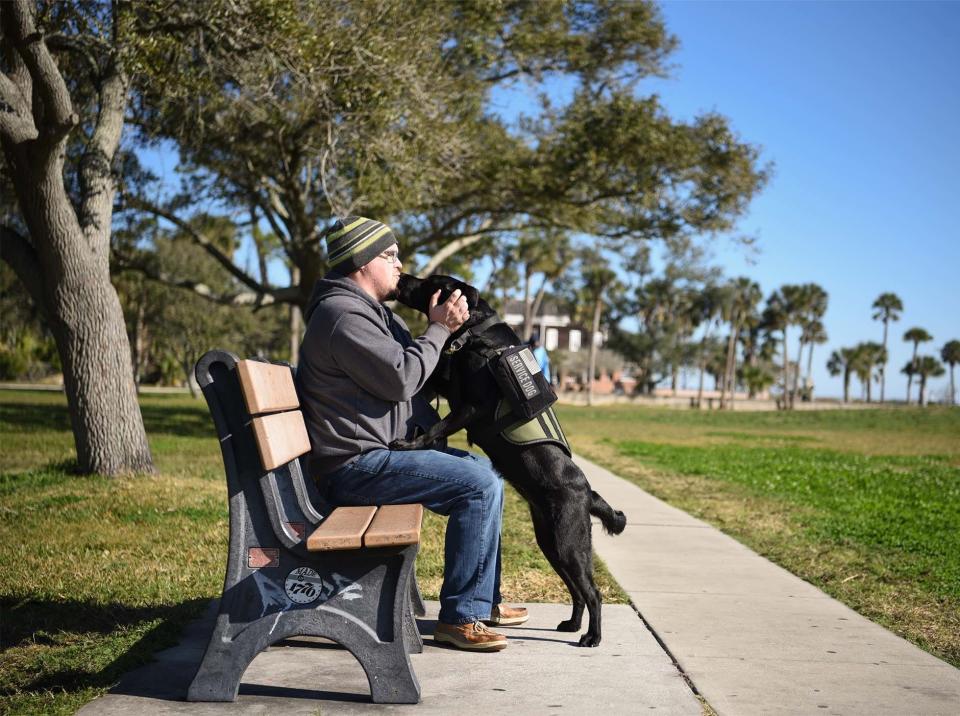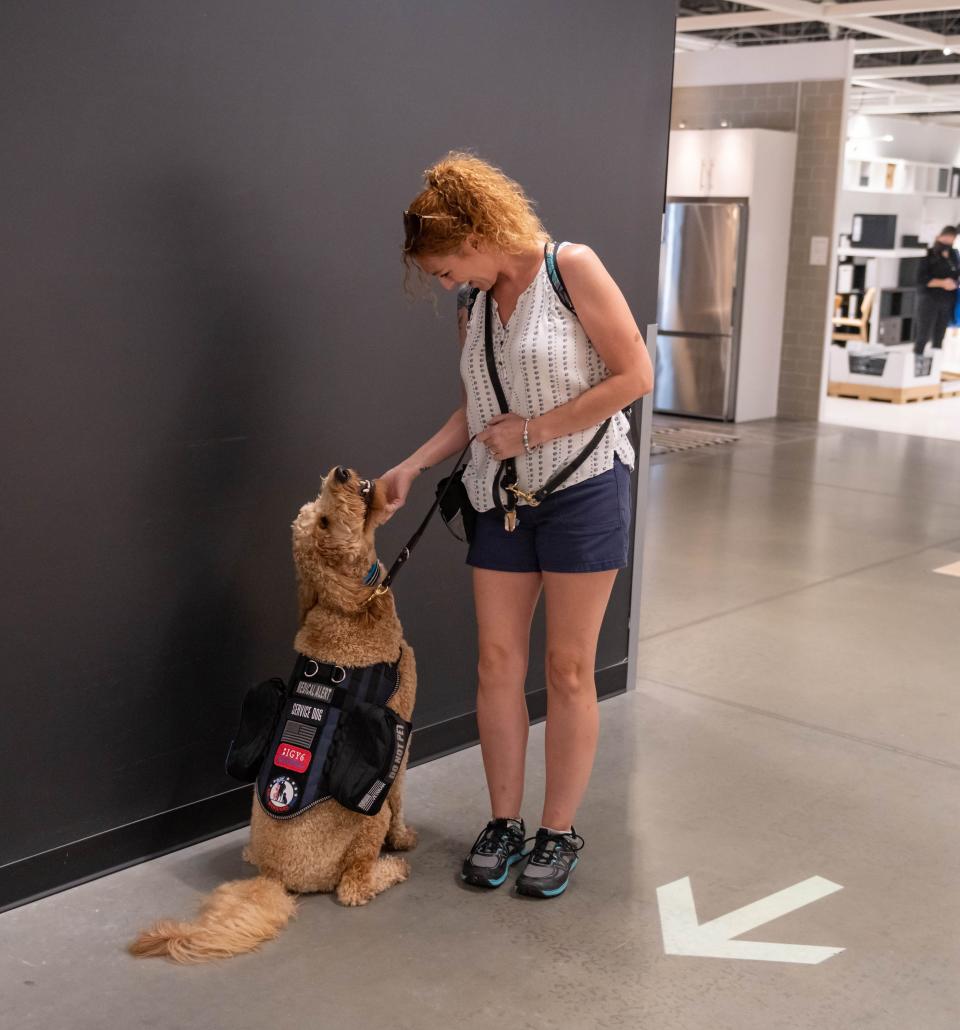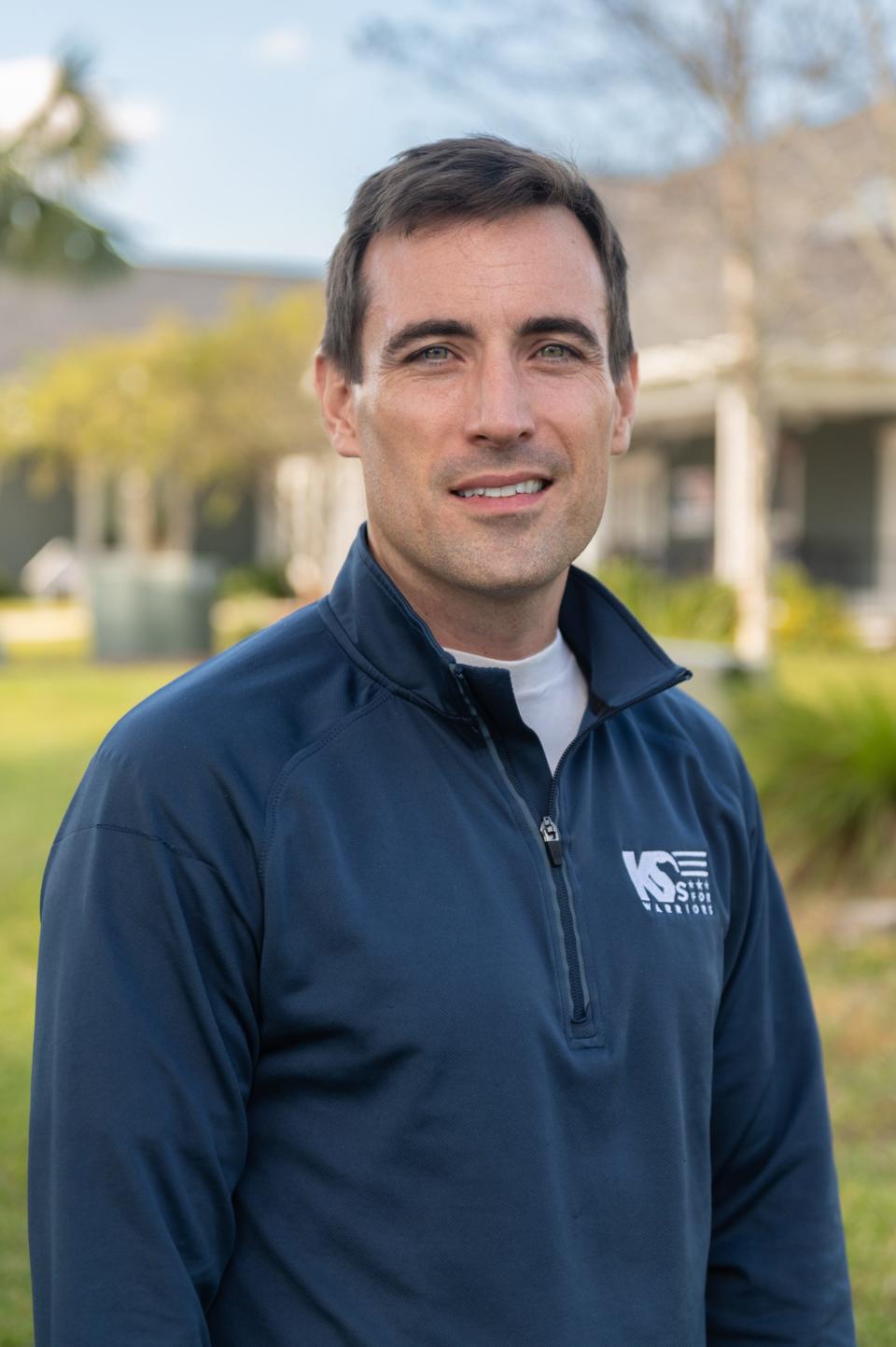Carl Cricco: ‘Suicide Prevention Moonshot’ needed to stop military, veteran suicides
Four bright, young Navy sailors assigned to the Mid-Atlantic Regional Maintenance Center in Norfolk, Va., recently lost their lives — all within mere weeks of each other. They were not lost at sea or to aircraft mishaps, nor to enemy fire or toxic exposures. These American heroes died by suicide.
Tragically, these four suicides are by no means the first. Earlier this year, three other sailors took their lives aboard the aircraft carrier George Washington.
One military life lost is one too many. We just lost four within four weeks and in 2021 alone, we lost 519 servicemembers to suicide, according to the Pentagon’s annual report on suicide within the military.
A step backwardsFour soldiers in Alaska died by suicide in one month despite surge in mental health help
'A significant gap'Here's what a recent assessment reveals for Jacksonville-area veterans
LettersA call for DCPS board members to heed lessons of empathy in 'Moonlight'
As the leader of K9s for Warriors, the nation’s largest provider of trained service dogs for military veterans, I have heard from our veterans on countless occasions about the desperate need for mental health resources during their service and after discharge. K9s for Warriors is determined to end veteran suicide, but we need sailors and soldiers to survive their service first in order to do that.
With this recent rash of suicides among sailors and the daily suicide rate among veterans at roughly 20, it is obvious that immediate action is paramount. Indeed, the overall numbers may not even be accurate because they do not include difficult-to-report suicides — veterans who died from drug overdoses and other factors. A recent analysis conducted by America’s Warrior Partnership, the University of Alabama and Duke University found that the veteran suicide rate may be more than double the figure reported last month by the Department of Veterans Affairs.
Regardless of what the numbers truly are, the scourge of suicide among both active military personnel and veterans can be mitigated; in fact, such deaths are entirely preventable. What is required is a “Suicide Prevention Moonshot,” similar to the “Cancer Moonshot” launched in 2016.
The goal of the latter is to reduce the cancer death rate by half within 25 years and improve the lives of people with cancer and cancer survivors. Our goal in the veteran suicide prevention community should be no less ambitious or urgent.

That urgency is reflected in U.S. Coast Guard veteran Jorel Wester, who came far too close to being a statistic. In 2017, Jorel decided to end his life. He served on the U.S. Coast Guard search and rescue unit for 11 years and the memories of those lost during that time haunted him; PTSD took over his life.
On what he believed would be his last day, hope came in the form of a Firehouse Subs soda cup that had an advertisement for K9s for Warriors, which provides service dogs for veterans with PTSD and other service-related trauma. He decided he would give the organization a call and if someone picked up and spoke with him, he would not go through with his plan. It would be his personal “moonshot.”
When we picked up that call five years ago, Jorel told us that, "When you're in that mental state, the hole is dark and deep." He emerged from the abyss after he was paired with a black lab rescue named Betsy. Life has never been the same. Betsy now works by Jorel’s side on the production line at Oshkosh Defense in Wisconsin and he says, “I can 100% say that I would not be here had I not seen that cup.”
Jorel is just one of thousands of veterans and current military members who almost became a statistic. All of them deserve a second chance at living a life of dignity and independence; they need to know they are not alone. We train our warriors to be strong, to go and fight and win wars, but we do not train them to know how to ask for help.

Nor do we do a stellar job of reaching veterans who need help but are not engaged with the VA system. To be sure, we are missing hundreds of thousands of veterans because we know that only about 50% use their VA health services.
We must do better. The first step is to change and expand the way we talk about suicide. While half of all people who die by suicide visit their primary care doctor within a month of their deaths, that doctor visit does not usually include a discussion of suicide as part of a routine examination. We need to screen for suicide like we do for routine health issues like blood pressure.
There also needs to be much more investment in and employment of non-traditional prevention methods. I am greatly heartened that the Department of Veterans Affairs recently launched a $20 million challenge called Mission Daybreak that seeks innovative ideas on how to combat veteran suicides.
One such innovation that has already proved to be successful is the use of specially trained service dogs. In fact, several studies, including one by Purdue University, have confirmed that certified service dogs provide a host of benefits to veterans with the invisible wounds of war, including lowering of overall PTSD symptoms and levels of depression, while increasing levels of life satisfaction and overall psychological well-being.
It worked for Jorel, it has worked for the more than 800 graduates of K9s for Warriors and it has worked for the many others who have benefitted from other veteran service organizations working to accomplish the same mission as ours — to end veteran suicide. But we cannot do it alone. We cannot ask our veterans to hold on any longer.
Just as with the Cancer Moonshot, we need to encourage and foster greater collaboration between public and private entities, increase sharing of real-time data and accelerate investments in promising research, in addition to providing more funding for successful non-traditional interventions, such as service dogs.
Veterans and active military personnel with PTSD, TBI, military sexual trauma, suicide ideation and other mental health challenges cannot keep waiting. A Suicide Prevention Moonshot for them is a matter of life and death.

Carl Cricco is the CEO of K9s for Warriors. He lives in St. Augustine.
This guest column is the opinion of the author and does not necessarily represent the views of the Times-Union. We welcome a diversity of opinions.
This article originally appeared on Florida Times-Union: 'Moonshot' needed to reduce suicide rate among military and veterans

